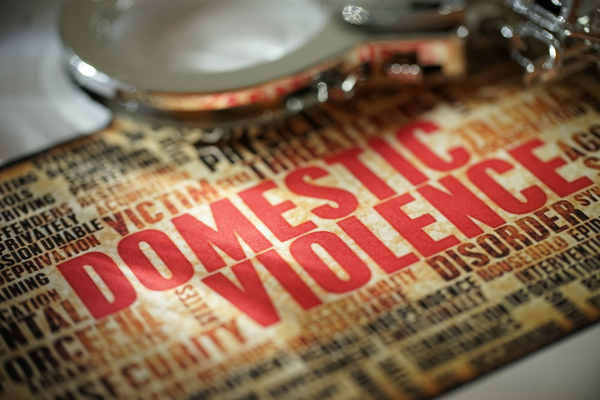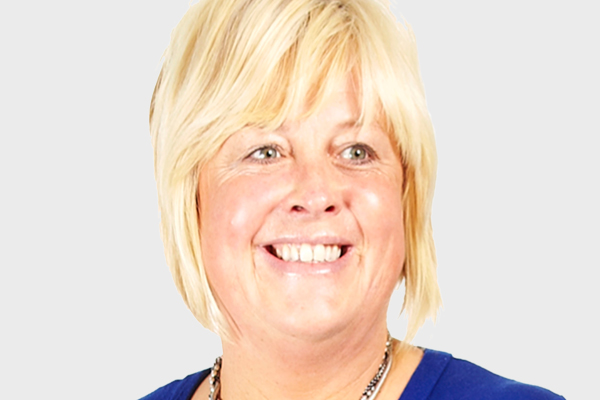You are viewing 1 of your 1 free articles

Alison is a former President of the Chartered Institute of Housing. She is a Board Member at Colne Housing Society. Alison is also on ...more
Housing providers need to help people before, during and after domestic abuse
Changes to the law to protect victims are welcome, but will only achieve a limited amount while abuse goes unreported. Housing associations simply have to do more, says Alison Inman
A recent change to sentencing guidelines means domestic abusers face tougher punishments – something we can all welcome with open arms.
The change means that someone who commits an offence in their home will face harsher sentences than the same offence committed outside the home.
Meanwhile, the new guidelines also make clear that domestic abuse is no longer confined to human contact, because perpetrators increasingly use social media and technology to reinforce their abuse.
That our courts have recognised the need to punish these crimes more severely is a massive step forward, because abuse in the home is seldom a one-off and generally escalates, meaning the victims are in greater danger and face repeated attacks.
But this change, along with some other positive recent moves, including a new bill to protect victims which passed to great celebration in Scottish Parliament, serve as a reminder to everyone who works in housing of the scale of the task in front of us.
The reason this matters for housing organisations couldn’t be clearer – everyone lives somewhere, and together we own and manage millions of homes.
Anyone in the business of providing a home should know that, fundamentally, it is about providing a place of safety and security for the people who live in it, and that their ability to lead the life they want to depends almost entirely on that foundation being in place.
We don’t know the true scale of domestic abuse because so much of it goes unreported.
But a survey in 2016 revealed more than four million women reported having been a victim at some point since the age of 16.
That means all of us are providing homes for victims.
“We have to think about how we can train our staff to pick up on the signs that someone could be a victim.”
Changes to law, though welcome, will only achieve so much while most domestic abuse remains unreported.
We simply have to do more to help victims.
And that doesn’t just mean providing refuge for them when things have reached crisis point – though we could do more on this, too.
It means helping people before, during and after their abuse.
Even with the shift in the way our services are provided, we still have a unique relationship with people in our communities; we still have more contact with the people we house than virtually any other organisation they will speak to.
We have to think about how we can train our staff to pick up on the signs that someone could be a victim of domestic abuse.
Could we, for instance, train housing officers, welfare teams and maybe even repairs staff to spot signs and report them?
But this shouldn’t just be about how we help victims pick up the pieces. We house victims – and that means we house abusers, too.
So we must also think about what we can do to prevent the abuse, as well as support the people who suffer.
A survey conducted by Kelly Henderson, co-founder of the excellent Domestic Abuse Housing Alliance as part of her role as a PhD research at Durham University, found that of 232 UK housing organisations that took part, just 6% worked with perpetrators to address their behaviour.
Gentoo, working with a number of other organisations in the North East, runs a fantastic 26-week training programme to help men deal with their abusive behaviour.
And it would be great to see many more housing organisations take their lead.
“Sharing expertise could go a very long way to help us find solutions to this huge problem.”
We also have to work more closely with other sectors. As part of my efforts to tackle this issue, I’m delighted to have been able to arrange an event in March which will bring together housing professionals, Women’s Aid, criminologists, the police and others working to protect domestic abuse victims.
As ever, sharing expertise could go a very long way to help us find solutions to this huge problem.
Domestic abuse affects our people, it happens in our homes and it is our problem.
So, while changes to the law on domestic abuse are welcome, the real protection starts at home. And for millions of people, that means it starts with us.
I don’t have all the answers, but I want to ask the questions because I want this to become a top priority for housing organisations.
And I want the organisations doing brilliant work to tackle this issue to become the norm and not the exception.
If it saves one life, it will be worth it.
Alison Inman, president, Chartered Institute of Housing













